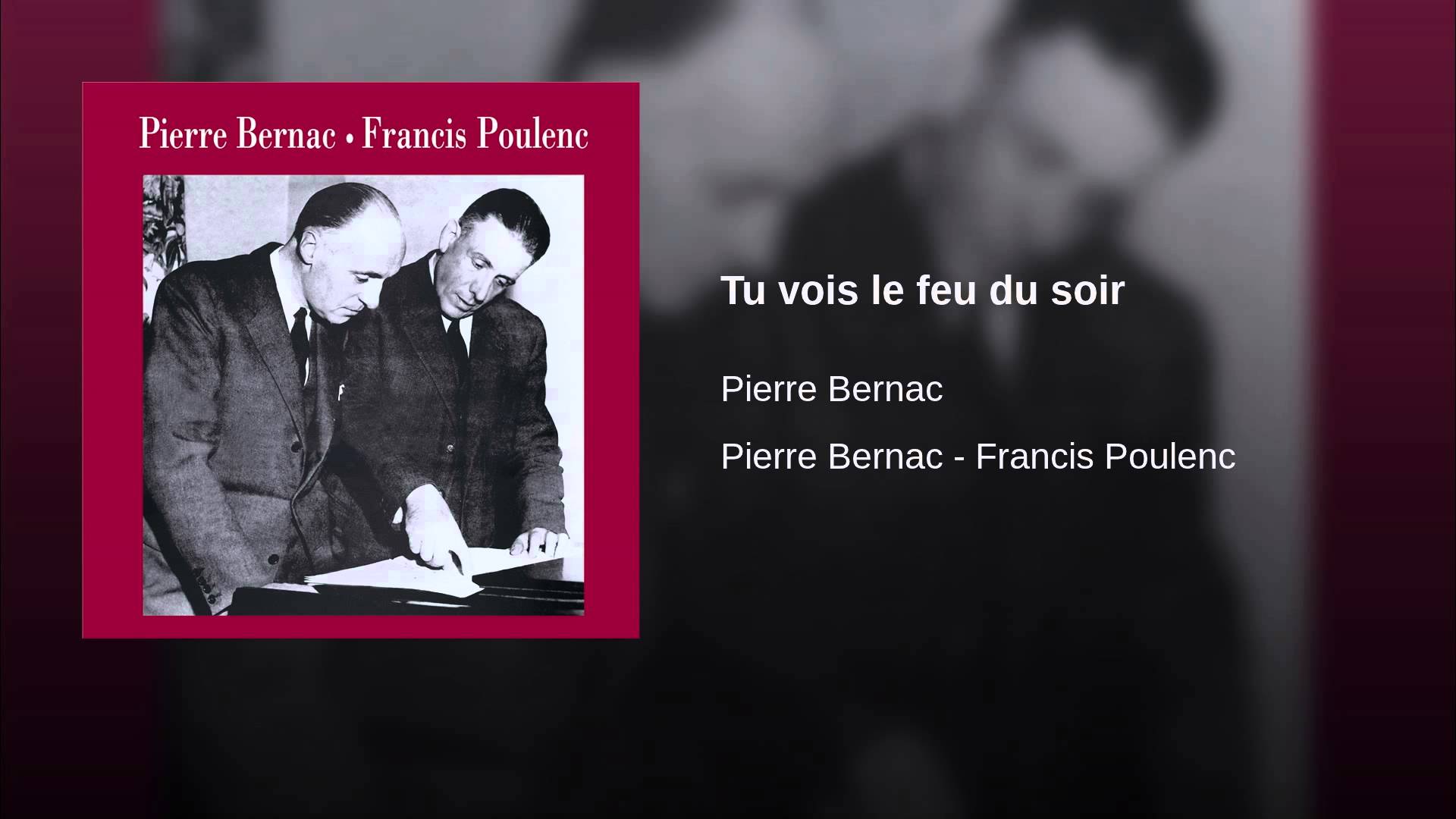The Wolf Trap concert I’m about to start rehearsing is another one of my quattro stagione pizzas: four groups of songs from four countries, each nationality introduced by a two-piano piece for Joseph Li and me to play. Joe had asked me to include some French music, and I obliged. I’m putty in his hands—and he’ll also be playing most of the songs.
Since the tenor Jonas Hacker was in the mix, I knew I had an artist sophisticated enough for Poulenc’s “Tu vois le feu du soir.” Paul Eluard’s poem speaks about the visionary quality of his beloved in a collage of surreal images. And the last lines describe an ego-less clarity, the transcendent ability to perceive and understand a world uncolored by one’s own self. Poulenc’s music glides like a gentle boat ride, rapt with adoration and appreciation. It was the composer’s favorite song, and his longest.
We musicians are always told to perform Poulenc’ music in strict tempo, no variations, no expressive stretching, no pulling on a phrase to allow for a relaxed breath. This came in part from Poulenc’s directives, but it was propagated for decades by his close friend and frequent muse Pierre Bernac. Bernac spent the latter part of his life teaching, coaching, and writing books. If your music-making already had a naturally strong sensuality, Bernac could be a superb instructor. But many of his disciples came out of his schooling with a rather rigid approach to Poulenc’s songs. I always felt this was wrong. Certainly Poulenc’s sexy music shouldn’t have the starchy quality of a sex manual.
Last time I did this song, with Paul Appleby, I listened to the recording by Poulenc and Bernac. And I was thrilled to hear that Poulenc himself played the piece with flexibility and a romantic spirit. Yes, the music is always flowing and the tempo variations are gentle, but this is no metronomic reading. It is rapturous. It swoons. And so do I.
Here’s the recording:
and here is the poem:
|
Tu vois le feu du soir qui sort Et tu vois la forêt enfouis dans Tu vois la plaine nue aux flancs La neige haute comme la mer Et la mer haute dans l’azur Pierres parfaites et bois doux Tu vois de villes teintes de Des trottoirs pleins d’excuses Une place où la solitude a sa Et l’amour une seule maison. Tu vois les animaux sosies malins sacrifiés l’un à l’autre Frères immaculés aux ombres confondues dans un désert de sang. Tu vois un bel enfant quand il joue, Il est bien plus petit que le petit Tu vois un paysage aux saveurs D’où la roche est exclue où la terre abandonne sa verdure À l’été qui le couvre de fruits Des femmes descendant de leur T’apportent leur jeunesse et leur Et l’une sa clarté la voile Te fait secrètement voir le monde |
You see the fire of the evening And you see the forest nestled in its You see the naked plain in the flanks The snow high as the sea The sea reaching high into the azure sky Perfect rocks and sweet woods You see cities tinted with golden Sidewalks filled with excuses A square where solitude has its And love has a single house. You see wicked animals sacrificed, Immaculate brothers, their shadows muddled in a desert of blood. You see a beautiful child when he plays, when he laughs He is so much smaller than the little You see a landscape scented with Eradicated of boulders, where the To the summer that covers it with fruit Women descending from their Bring you their youth and their And one, her radiance the veil Makes you see, secretly, the world |



0 Comments